David Warner: Rise and fall of Australian cricket great
The spray from Mitchell Johnson over the ‘Sandpapergate’ scandal thrust David Warner back in the limelight - one the batter can’t escape.
The David Warner we know from the cricket field has always been a walking contradiction.
Hard-hitting Twenty20 upstart who became a great in the longest form of the game.
Straight-shooter whose underhanded tactics got him banned for a year.
A must-watch entertainer who remains hugely polarising with fans.
The controversial dismissal of England wicketkeeper Jonny Bairstow in the second Ashes Test in August cast the limelight back on the culture of Australian cricket.
Good or bad, Warner’s name will forever be front and centre of the conversation given his involvement in the sandpaper scandal of 2018.
Then in December former teammate Mitchell Johnson again stirred the issue by claiming the opener did not deserve a hero’s farewell.
Through it all Warner has made runs on the field and been a talking point off it – this is the story of his unlikely cricket rise, his catastrophic fall, and his transition to family man.
EARLY YEARS
David Andrew Warner was born to parents Lorraine and Howard on October 27, 1986 in Paddington in eastern Sydney.
Along with his older brother Steve, Warner grew up in a housing commission flat at Matraville, a hard-knock start to life he reflected on in 2014.
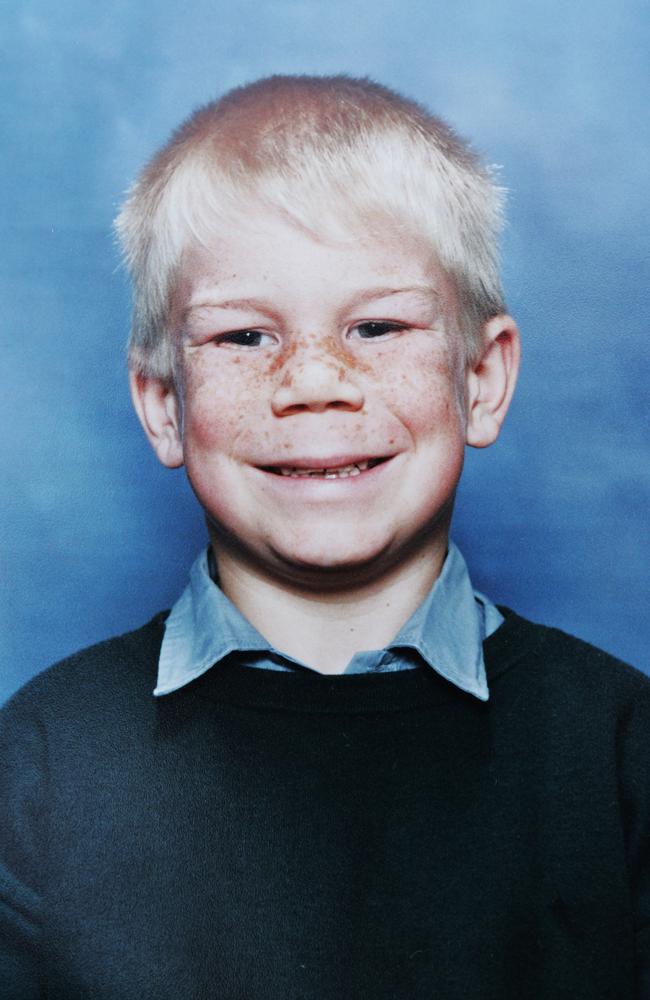
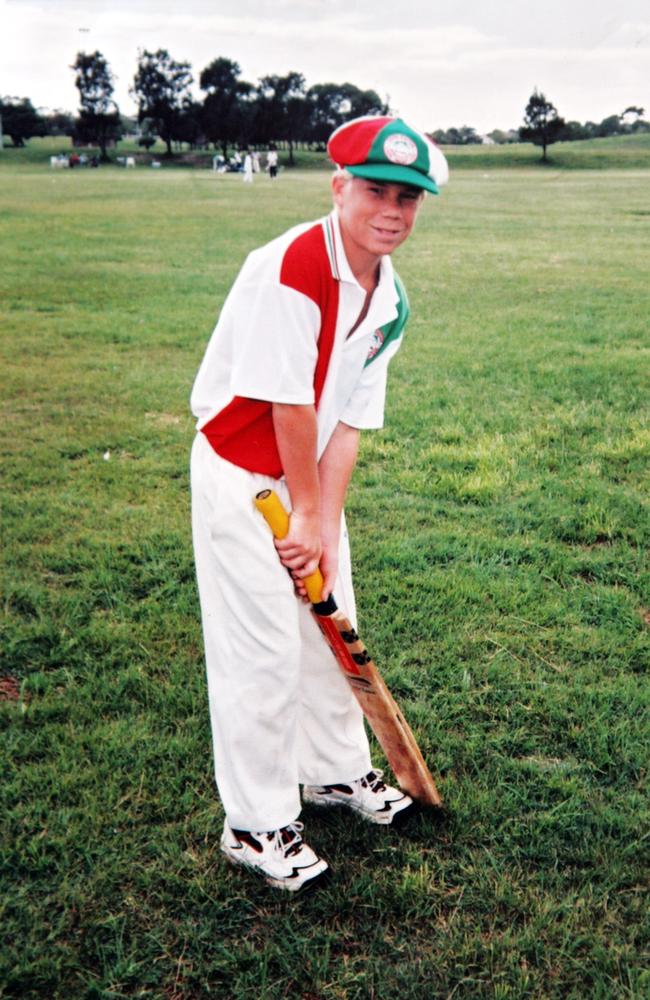
“Growing up in my family, you never got anything you didn’t work for,” said Warner, who went to Matraville Public School and Randwick Boys High School.
“When I was really little, I remember always asking to have this toy, or that treat. I got told ‘no’ so often, eventually, I learned not to ask.
“ … But you soon realised that, if you wanted something in life, fine … go earn it.”
That lesson meant at age 14 Warner took his first job stocking shelves at Woolworths.
“Sometimes I worked until three o’clock in the morning and then got back up at seven for school,” he said.
“Then on weekends, I’d deliver newspapers to earn enough for school camps or maybe a trip to the Easter Show.
“Every Christmas I prided myself on having a gift for Mum and Dad.
“Looking back on all that now, I’ve started appreciating the huge divide between wanting something and actually achieving it – and the work required to fill it.
“As a kid I always wanted to be someone, to make it.”
GETTING INTO CRICKET
The love of cricket came early. As did the appreciation of the equipment.
“The first cricket bat I ever owned was an SS Jumbo – and it only left the house on Saturdays,” he said in 2014.
“ … I knew my oldies barely had enough money to buy me that stick.
“And what happens if the handle breaks?” I would remind myself. Or, heaven forbid, somebody at school decides to pinch it?
“ … And so, each week, it was saved until game day. For everything else, like those matches around our townhouse, I’d whack away with one of those little green plastic bats someone had got from a Milo coaching clinic. And that was fine.”
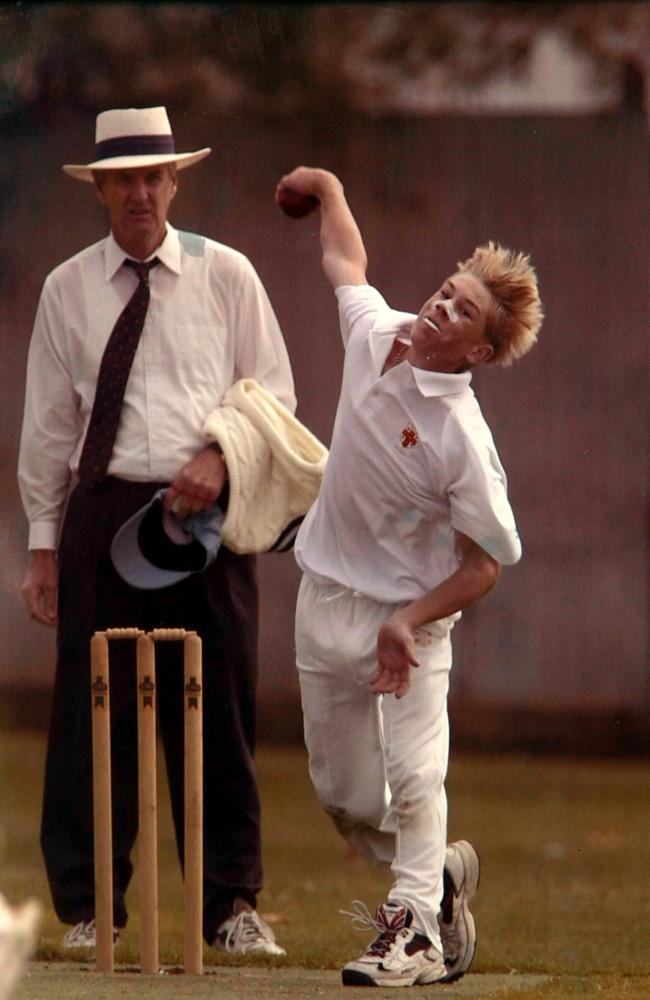
After impressing in the junior grades, at age 13 Warner’s coach Laurie Heil famously asked the young batter to switch to right-handed in a bid to stop hitting the ball in the air.
However, after one season, he returned to his attacking left-handed methods and went on to break Sydney Coastal Cricket Club’s under-16 runscoring records.
“I thought I was pretty good until he came along,” said his brother Steve, whose record he shattered.
“I had set a few records for Coastal and he just smashed them. He has always been extremely talented in every sport he plays.”
That foray led to a first grade debut for Eastern Suburbs at 15, later touring Sri Lanka with the Australian under-19s and earning a rookie contract with NSW.
Bigger things awaited.
MAKING A MARK
The impact was instant.
Hurricane Warner arrived on November 29, 2008 as he hit his first domestic one day century – his unbeaten 165 against Tasmania at Hurstville Oval was the highest score by a NSW player.
He backed that up later in the 50-over competition with a 54-ball 97, narrowly missing the record for the fastest century in Australian domestic cricket.
By now the hype was growing and the spotlight glaring.
In January 2009 Warner’s headline-making act arrived.
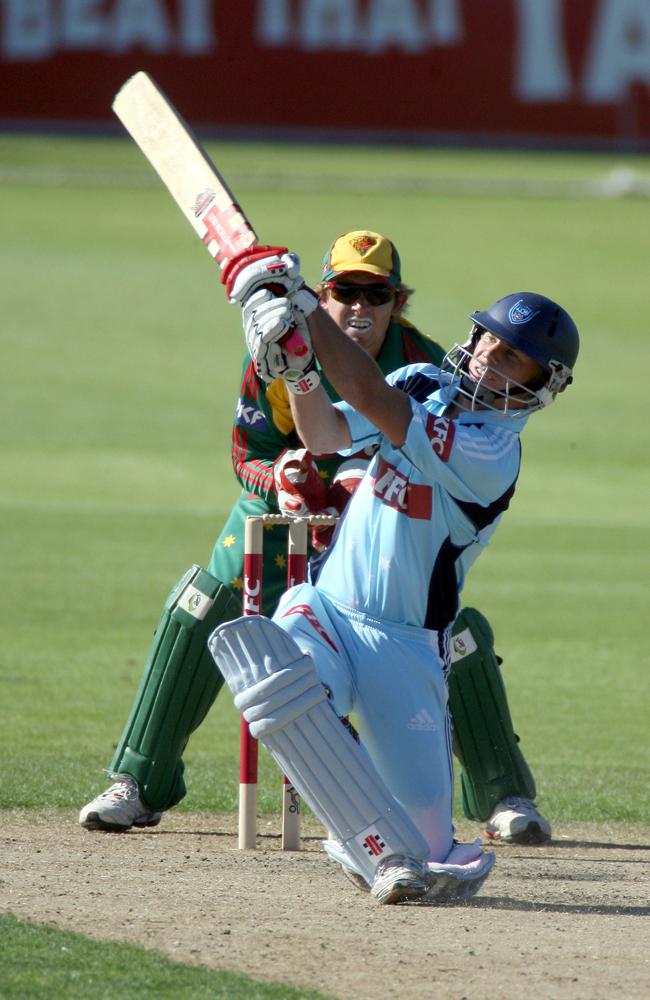
Opening the batting in a Twenty20 international against South Africa at the MCG, Warner – becoming the first player since 1877 to debut for Australia without playing a first class match – redefined pathways.
His 43-ball 89 in front of a mesmerised TV audience proved this was a new era of the game.
“Mum is going to come to a game soon,’’ Warner said at the time after Lorraine was unable to get off work to fly to the game.
“She gets so nervous she can barely stand watching me play club cricket, let alone for Australia.
“They keep saying to me: ‘That’s enough, that’s enough. You’ve done us so proud already, no matter what happens from here on, we’re proud of you’.’’
The innings was so astounding Shane Warne and Darren Lehmann were among those to appeal for Warner to be immediately added to the Aussie 50-over squad.
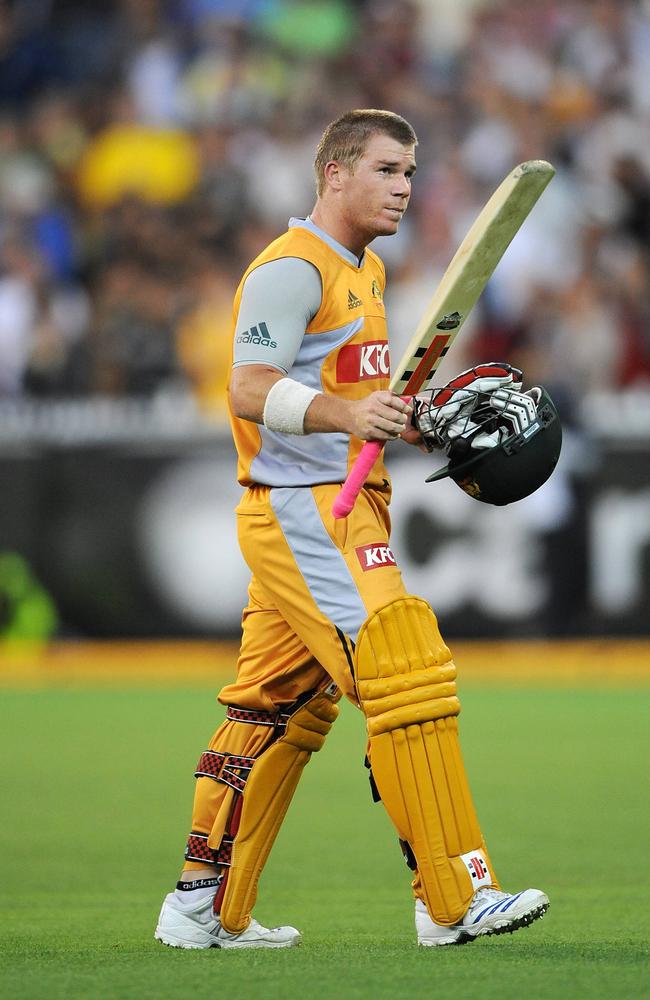
“He will certainly excite fans like Adam Gilchrist has for many years to come,” Lehmann said.
Warne added: “We saw a player who can take the game away from the opposition in a handful of overs.”
Within weeks Warner would be making his ODI debut for Australia, but action in the oldest format took longer.
CRACKING FIRST CLASS CRICKET
First class cricket appeared a curious formality for Warner, given his rare talents, albeit coupled with a style that left fans thrilled and uncomfortable at the same time.
Within a week of his international T20 debut exploits Warner admitted he would consider a switch of states if it meant he got a shot at Sheffield Shield cricket.
“I have no intention of leaving NSW, I want to play for the Blues, but we will sit down and try to sort things out and if they can’t offer me a spot in the side, then we will have to assess the situation,” Warner said at the time.
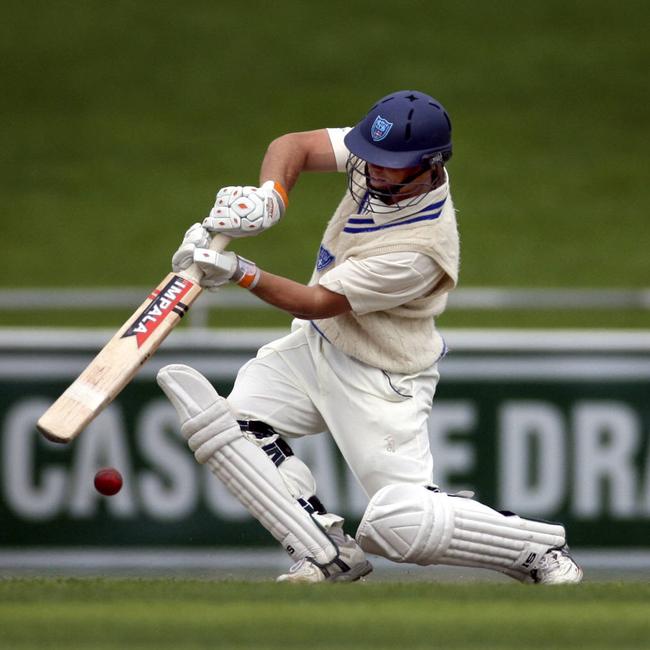
The patience would pay off.
Warner made his debut for NSW against Western Australia in the final match of the 2008–09 Sheffield Shield season, scoring 42 off 48 balls batting at No.6.
“If I can submit some good totals on the board, just keep pressing my claims forward, and if an injury comes up, I’m going to make sure my name’s up there at the top of the list to take that,’’ he said in 2009 when asked about playing all formats in the future.
In 2009 Warner outlined his ambition to play Test cricket – possibly with bat and ball.
“I want to play Test cricket and being an all-rounder can definitely help me achieve that,’’ he said.
“It (bowling leg spin) is something I’ve always maintained.”
Within two seasons Warner had become a regular atop the NSW order in all forms, as well as semi-regular in Australia’s shorter formats.
BECOMING A CRICKET GIANT
The doubts remained about Warner as a Test cricketer.
Even future Aussie opening partner Chris Rogers expressed concerns.
“I guess looking back I was thinking ‘how is this bloke going to be able to defend against good bowling?”. he said of Warner’s ascent to the Test side.
Within two games many critics were silenced.
Australia’s shock defeat to New Zealand in Hobart in December 2011 was underlined by Warner’s unbeaten 123, carrying his bat in a knock that proved he was more than a basher.
By January 2012, in his fifth Test Warner smashed a 69-ball century against India – the fourth fastest ton at the time.
A lull in form and off-field issues in 2013 saw Warner dropped during the Ashes, however he returned in 2014 to pay an emotional tribute to the late Phil Hughes.
“Yeah definitely it was in the back of my mind,” Warner said after his twin tons of 145 and 102.
“We’ve been seeing the highlights of (Hughes’) back-to-back hundreds in the last week or so and it’s a fitting thing I think.”
His form continued in all formats of the game in the coming seasons.
He passed 5000 Test runs in 2016 and 100 ODI caps in 2017.
After serving his 12-month ban for ball-tampering (more on that later) he returned for the 2019 Ashes. However it became a nightmare as Stuart Broad’s around-the-wicket approach saw the England quick dismiss the opener for just 95 runs across 10 innings.
Yet it wasn’t long until fans saw the best of Warner again.
Warner’s most famous Test knock came in November 2019 as he became the first batsman to score a triple century at Adelaide Oval – 335 not out against Pakistan.
Throughout this period Warner filled in as captain nine times in T20 matches and three times in ODIs, winning 11 of the 12 games.
From 2021 to 2023, amid the backdrop of Covid, Warner’s Test returns diminished as his place in the Aussie Test side came under question.
Despite the question marks, Warner created further controversy when he announced he would retire after the impending Test series against Pakistan.
A ton in the opening match dispelled most queries about his spot and his exited the format with 57 in a winning chance at his home ground of the SCG.
BUILDING A FAMILY
From on-field pit bull to off-field poodle, Warner slowly and quietly transformed his image over the years as he matured into a family man.
In April 2015 he married former ironwoman Candice Falzon the on Easter long weekend at the country wedding estate of Terrara House in Nowra, NSW.
“How could I not have a tear in my eye when I saw Candice walk around the corner looking like the most beautiful bride in the world?” Warner told Woman’s Day at the time.
“I was struck again by just how lucky I was to find ‘The One’ – the woman I will spend the rest of my life with.”
The couple have since had three daughters: Indi Rae, Isla Rae, and Ivy Mae.

Shedding his cricketing controversies, Warner was named Australian Sports Dad of the Year in 2016.
Warner’s strong family ties can be traced back to his upbringing, one the cricketer has never forgotten.
In 2013, as his sporting value rose, he gifted his parents a house to ensure they didn’t need to work again.
“We have always been battlers, it’s been a struggle at times,” said Howard, a hardware salesman.
“He’s looked after us, he’s a bloody good boy. I’m so proud of him. To be honest, Dave has got us out of debt. We weren’t in huge debt but we had credit cards and he’s paid them all off for us.”
Howard also touched on Warner’s fiscal smarts.
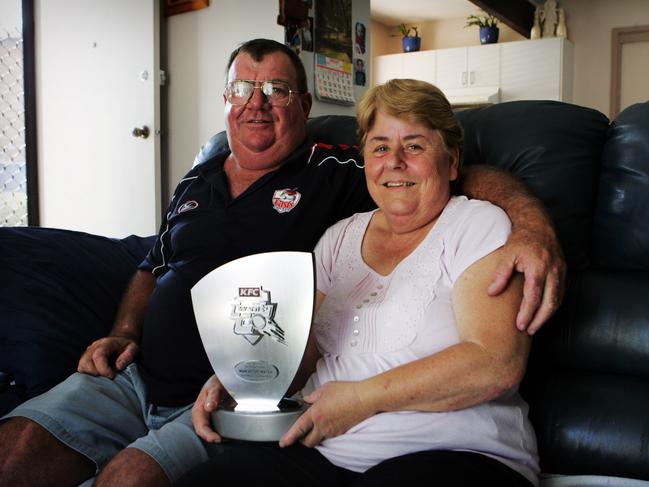
“You can easily underestimate Dave but he is very street-smart and very savvy off the field. He is doing the right thing with his money and setting up his financial security,” he said.
“The great thing is Dave is unaffected by it all. He hasn’t forgot his roots, he is still the same kid who grew up in Matraville.”
In 2009, Warner honoured his vow made to his grandfather, Frank, on his deathbed – that one day he would represent Australia.
“That was for his grandad – when David scored his half-century and looked up at the sky, it was for him,” Lorraine said after his T20 debut.
CONTROVERSIES
Twitter outburst
In May 2013 Warner was fined $5570 for his Twitter outburst at two News Corp cricket writers.
He was found guilty of breaching Cricket Australia’s code of behaviour after Warner used Twitter in India to launch an expletive-filled attack on journalists Robert Craddock and Malcolm Conn.
Warner, playing for Dehli at the time, took exception to an article critical of the IPL.
Conn tweeted: “You lose 4-0 in India, don’t make a run, and you want to be tickled on the tummy? Win the Ashes and get back to me.”
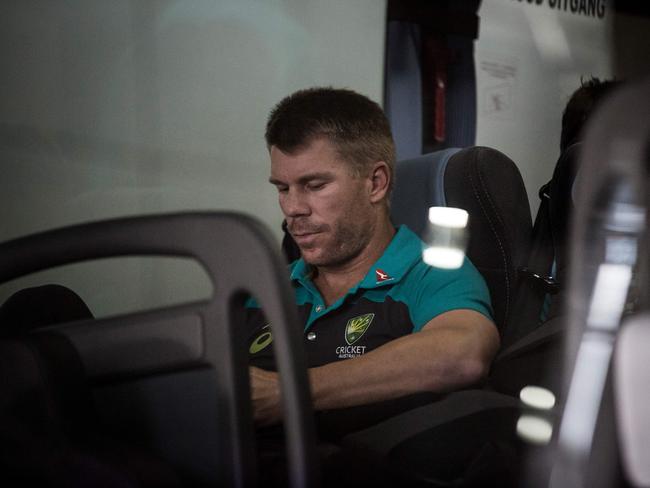
Warner replied: “Coming from you champion all you do is talk s*** as well. What about encouraging Aus players rather then bagging them.”
Warner issued a statement on the exchange after being reprimanded by Cricket Australia.
“In hindsight, clearly I let my frustrations get the better of me and posted some inappropriate tweets last weekend,” Warner said in a statement after pleading guilty to the charge.
“While I disagreed with the story and my image being used alongside the story, I could have chosen my words better and I apologise for any offence that my language may have caused.”
Warner v Johnson
Former teammate Mitchell Johnson in December 2023 sparked headlines when he penned a scathing newspaper column about the opener.
The quick claimed Warner did not deserve a hero-s farewell to Test cricket due to his involvement in the sandpaper scandal of 2018.
“As we prepare for David Warner’s farewell series, can somebody please tell me why?” Johnson wrote.
“Why a struggling Test opener gets to nominate his own retirement date. And why a player at the centre of one of the biggest scandals in Australian cricket history (Sandpapergate) warrants a hero’s send-off?”
Warner refused to bite back but reactions ranged from bemusement from the likes of Michael Clarke and George Bailey – who also copped a spray from Johnson – to fierce defence of the batter from Pat Cummins and Glenn Maxwell.
Academy expulsion
Two years before he burst on to the scene Warner was seen as a bullish young muckraker, illustrated by his dismissal from the 2007 Cricket Australia Academy.
A seriously messy room was the leading offence, one Warner put down to “immaturity” but also hailed as a blessing in disguise.
“It was definitely the turning point … I’ve since learned from it and worked my butt off to be where I am,’’ Warner said in 2009.
“It’s just one of those things, you have to pay the consequences and I’ve bounced back a better person.
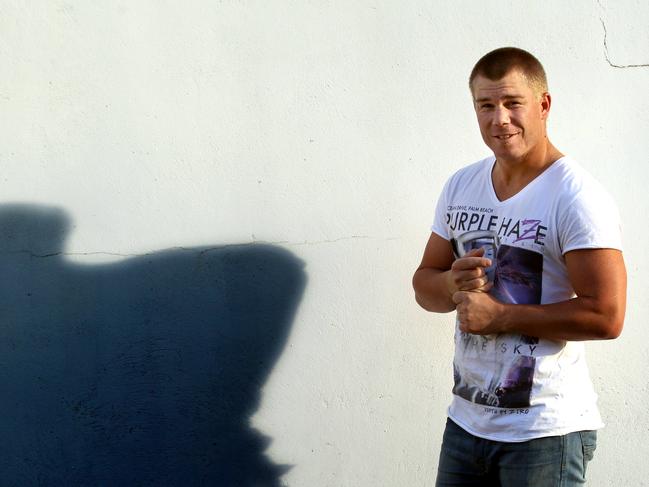
“It was probably that moment that I realised I had to turn things around if I wanted a future in the game.’’
Brother Steve also gave him an influential ultimatum.
“I’m a plumber, and I said to him, ‘You can give it away and come labour for me, digging trenches, or you can put your head down and put everything into this if you want to be a professional sportsman’,” he said in 2009.
Ball tampering
However his career is remembered, Warner will forever be linked to Cape Town’s sandpaper scandal.
In March 2018, during the third Test against South Africa, Aussie opener Cameron Bancroft was spotted by TV cameras trying to rough up one side of the ball.
It would later emerge that Bancroft was using sandpaper, an action endorsed by vice-captain Warner and captain Steve Smith, who admitted passive ignorance over the tactic.
The incident would ultimately lead to the dismissal of Warner and Smith from their roles, as well as bans for the trio.
Warner, suspended from international cricket for a year and stripped of leadership roles for life, was the first to respond publicly.
In a tweet he apologised for his part in the incident and took responsibility for his role in it.
Accompanied by his family, he later gave a teary press conference as he returned to Sydney Airport in disgrace.
Candice Warner would later detail the mental toll the incident took on her husband.
“It’s been tough, it’s been really tough,” she said in October 2018.
“When David has his bad days they are really bad but they are few and far between now.
“ … It was really tough, I wouldn’t wish that upon anybody.”
With speculation bubbling along for years about who knew what about the incident, Warner in late 2022 appealed to have his leadership ban overturned.
What ensued, however, was even greater drama as he would later withdraw his bid amid claims of a “public lynching” by Cricket Australia.

“We reached out to them in February, we had no idea how it went on this far and only CA can answer that,” Warner said.
“And they will probably give you the same thing that they always give everyone else, they don’t really give an answer.”
Warner’s manager James Erskine added fuel to the fire by claiming the opening batsman had “protected” Cricket Australia and its players for years and was unfairly villainised.
The dismissal of England wicketkeeper Jonny Bairstow in the second Ashes Test of 2023 thrust the spotlight back on to the culture of Australian cricket - meaning Warner’s antics in Cape Town again became a talking point.
Punching Joe Root
In 2013 Warner was forced to deny he had a drinking problem after copping a four-week ban and $11,500 fine for punching England’s Joe Root in a Birmingham bar at 2.30am.
Cricket Australia chief executive James Sutherland at the time confirmed they were looking into Warner’s relationship with alcohol after he and five other Australian players were drinking at the time of the incident.
“Whatever the case is, he is making some pretty ordinary decisions and getting himself into trouble,” Sutherland said.
Warner responded.
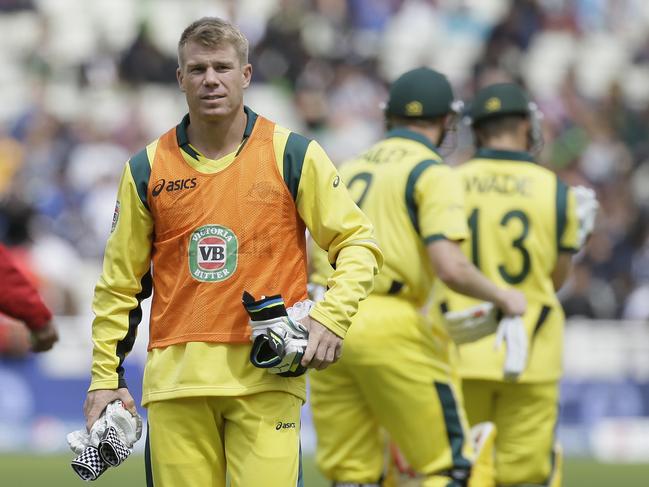
“Definitely not. I don’t think I’ve got a drinking problem at all,” Warner said in London.
“It’s just basically I’ve got to make the right decisions at the right time.”
Warner admitted he had been drinking on other nights during his stay in Birmingham, but denied on those occasions to drinking until the early hours.
“This is up to me now to be accountable for my actions which I am,” he said.
“I have to apologise for what I did and I can’t put myself in that position ever again.
“And not let the team down and everyone else down and in these circumstances try not to be aggressive like I did.”
In 2022 Warner reflected on the incident.
“I didn’t feel like I had anyone to talk to back then. No one. I was different. I liked to enjoy my life,” Warner said.
“ … What highlighted that fact was obviously the incident with Joe Root. That was the big one.”
On-field trash talking
Warner’s brash attitude in the field, often the source of division in the eyes of the public, has long matched his batting style.
In July 2013 while playing for Australia A Warner was involved in an on-field altercation with South Africa A keeper Thami Tsolekile.
Umpires twice stepped in to calm tensions, while Warner later called it “friendly banter” and no formal complaints were made.
Now marked as a troublemaker, Warner in 2015 was called out by New Zealand great Martin Crowe, labelling the batter’s on-field behaviour “thuggish” and “the most juvenile cricketer I have seen on a cricket field”.
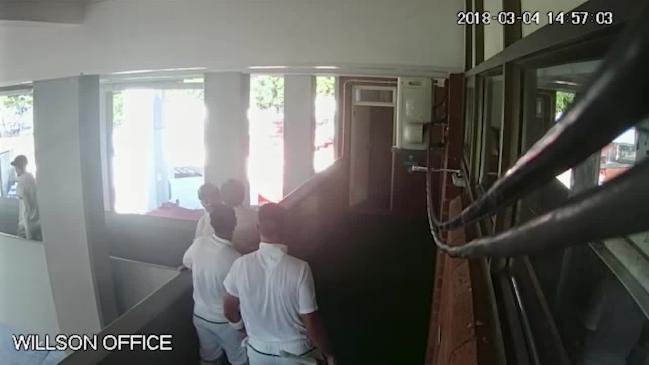
Just weeks before the ball-tampering saga Warner was involved in an altercation with Proteas gloveman Quinton de Kock in the stairwell during the first Test in March 2018.
De Kock allegedly made a vulgar comment about Candice Warner, leading to Warner firing back before being restrained by teammates Usman Khawaja and Steve Smith.
Warner was charged with a Level 2 Offence and bringing the game to disrepute by the International Cricket Council and was given three demerit points and was fined 75 per cent of his match fee.
In the infamous third Test of that series Warner was taunted by a spectator which escalated into a heated exchange as the batter left the field upon being dismissed in the first innings.
The fan was ejected from the ground over the incident.
“I don’t regret anything. You make your own path, right? No one is perfect and you should never judge anyone until you’re perfect,” Warner said of his journey in 2022.





To join the conversation, please log in. Don't have an account? Register
Join the conversation, you are commenting as Logout